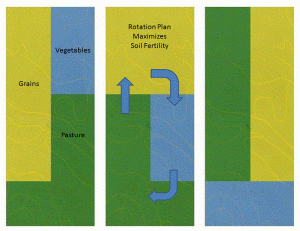In view of the rising concern and awareness of human activities affecting the ecosystem, global climate and other aspects, there has been a lack of knowledge of what exactly causes them and what we can actually do to help reduce that. Hence although it may be comforting that the environmental education has been increasing globally, more education about the environment is required to provide the right and suitable knowledge to bring about change, not only in attitude but behaviour as well. Guidelines as to how to specifically reduce the negative impacts of our activities are required.
For instance, in the case of our Case study 2, the Indonesian government can implement strict laws and land ownerships to limit the extent of peatlands that can be converted for other land uses, and take measures to ensure that only legalised organisations or people with licence can use controlled fires to clear these land. Measures have to be taken too to ensure enforcement of these laws, and those that do not follow would have to face certain penalties such as fines when the fires get out of control and affect other peatlands. The government can help to raise awareness and gain cooperation from the public by educating them on the seriousness of the issue and highlight the need to change our behaviour to reduce the negative consequences of our activities. Education schemes for the conserving of the environment for everyone, including farmers, can be carried out, with each scheme providing suitable information and guidelines for actions that can be taken. For instance, guidelines for environmentally friendly agricultural practices can be provided for farmers. As for the common public who are mostly consumers on the market, information about the serious impacts and changes taking place in their environment can be coupled with information of companies or organisations with more environmentally friendly practices to encourage the public in supporting them. In contrast, information of companies or organisations with environmentally unfriendly practises can be provided too so that consumers can avoid purchasing their products, thereby encouraging these companies to engage in more environmentally friendly practises.

An example would be Indonesian palm oil producer Sinar Mas Agro Resources and Technology (SMART), lost a number of major customers—Unilever, Kraft, Nestle, Burger King, and General Mills, after it was revealed that SMART engages in environmentally unfriendly practises of irresponsible clearing of peatlands and rain forests.
On the community level, communities that work on plantations on peatlands near each other can communicate and come up with rules for the community to follow to endure responsible behaviour in every member. These rules can include responsible practices to ensure that the fire used in the clearing of the land is controlled and would to spill over to other peatlands, and organised formation of land usage within the community where they would participate in land use rotation, allowing the lands to rest and recover for a few years before using them again.

The rotation of land use reduces the need to constantly find new lands for plantations, reducing the impact on primary peatlands and thus reducing the carbon emissions that would be released from burning or draining them.
On the individual level, individuals can engage in “environmentally responsible” consumption of products and services, by supporting companies known to be environmentally friendly and boycotting those who are said to engage in environmentally damaging practices. Individuals can always participate or lead campaigns that support the reduction of clearing of peatlands and responsible usage of them.
With these actions carried out, the rate of carbon emissions from clearing and burning of peatlands has hope to stop increasing, reducing the negative impact they have on global carbon cycles.
